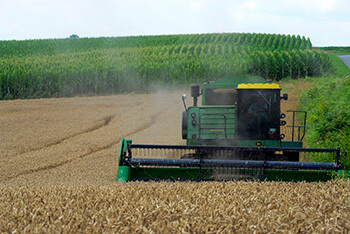Top 7 Tips For Winterizing Farm Equipment
Oct 14, 2019

The end of harvest season will be approaching in the not-too-distant future, and with it will come the time to give your farm machinery the break it needs. But before storing your equipment, it needs to be properly prepared for winter’s chill.
Here are the Top 7 tips from TFC’s Farm Equipment Department for winterizing your valuable machinery:
Here are the Top 7 tips from TFC’s Farm Equipment Department for winterizing your valuable machinery:
- Clean equipment thoroughly, inside and out, of dirt and debris when finished with the harvest season.
- Grease or oil parts to keep them lubricated until next usage.
- Drain sprayers of water from lines, filters, and pumps to keep from freezing over the winter.
- Add RV antifreeze to help keep excess moisture from freezing.
- Clean spreader and oil if used in fertilizer to keep from rusting.
- Check air pressure in tires to prevent flat spots while storing.
- Make a list of repair parts needed. Co-op offers repair parts for the equipment we sell.